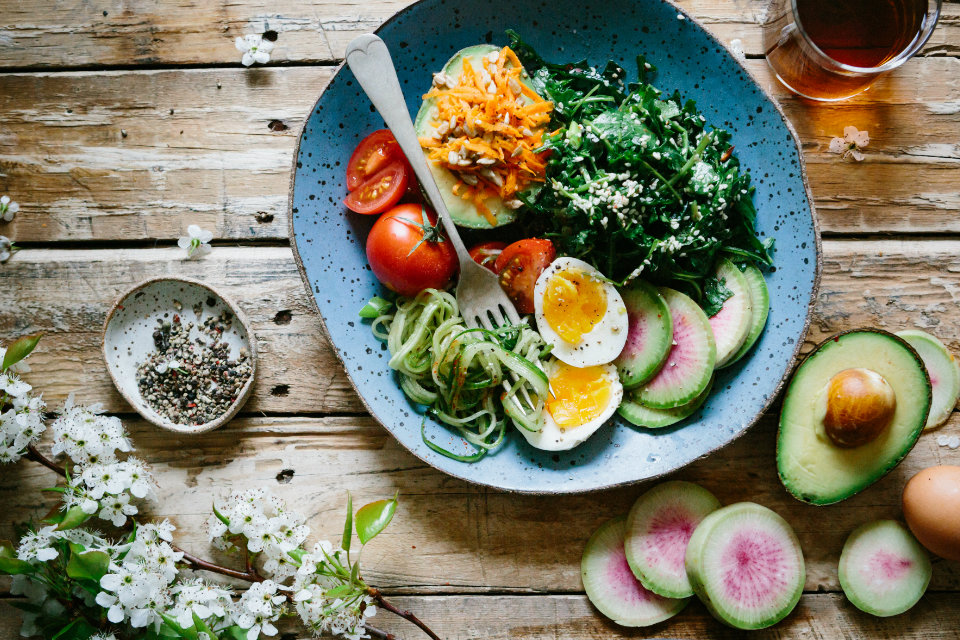Breakfast with Dr. Mouton
Dr. Georges Mouton is an internationally renowned expert in Functional Medicine. His job involves developing tailor-made treatment programs that help his patients achieve optimal health. While his main work involves preventing chronic degenerative diseases, he has also invested much of his time in publishing books, articles, and abstracts to share what he has learned in his research. Dr. Mouton is used to giving lectures on his findings all across the globe, but he made a short stop in New York City to share a little bit of wisdom with BWB. Our choice topic for the day? Breakfast.
What is so special about breakfast?
A good breakfast will bring up your level of blood sugar gradually after a whole night without food.
Breakfast really is essential because it sets the tone for the entire day. If you leap into your day with something that spikes your blood sugar, then you are beholden to a system of intense and uncomfortable fluctuation. A good breakfast will bring up your level of blood sugar gradually after a whole night without food.
What are some issues with breakfast as a meal?
In much of Western society, one of the big problems we have with breakfast is our need to make it a different type of meal. There is no real reason for this. If you think of Asian cultures, their breakfast isn’t fundamentally different from other meals. In France, Italy, Spain and the US, we prefer sugar-based foods and cereals for breakfast, but we would never eat that food for other meals.
I am not a big supporter of cereals. Oatmeal is better, just because its glycemic index is so low, but it is still cereal. I would recommend the many cereal substitutes, or pseudo-grains, that are out there, such as quinoa, buckwheat and amaranth. Amaranth actually belongs to the same family as spinach, so we’re neither talking about grains nor cereals, which means it is much less inflammatory and most likely less allergenic.
You can find more options by visiting the Gluten List on my website www.gmouton.com.
Why do you find cereal so problematic?
These days, doctors in America working with Functional Medicine believe that the healthiest thing in a box of cereal is actually the cardboard box itself, and anything you find inside is truly toxic.
Cereals are often inflammatory, allergenic and ultra-sweet, and thus display disastrous numbers in their glycemic index. The vitamins added to the cereals for marketing purposes are often synthetic and of low quality. Cereal is what I call a toxic breakfast.
What we need for breakfast are proteins containing tryptophan, an essential amino acid that is the precursor to serotonin.
In France as well, the croissant-jam breakfast is catastrophic. As soon as we tell a French patient to cut sugar out of his breakfast, we’re forced to administer CPR, as he’s on the verge of cardiac arrest!
What kind of breakfast do you recommend?
What we need for breakfast are proteins containing tryptophan, an essential amino acid that is the precursor to serotonin. It cannot be synthesized.
In Nordic countries, or in Scotland, they serve salmon or haddock for breakfast. Certain cheddar cheeses are okay, as long as they are not consumed every day.
As long as you’re not allergic, it’s fine to eat eggs in the morning, as well. People’s systems also react quite well to fish in the morning. In Nordic countries, or in Scotland, they serve salmon or haddock for breakfast.

Certain cheddar cheeses are okay, as long as they are not consumed every day. Even better is a nice, hard, and long-refined sheep’s cheese, which hardly contains lactose and thus isn’t highly upsetting. Another thing to consider from time to time is fine dry-cured ham, the type that’s often made in the mountains, like from the pigs in Spain who are fed acorns.
Any final breakfast tips?
If you can’t get into any healthy breakfasts, it’s not a big deal. Simply hold off on breakfast and have brunch, which consists of food far closer to that of lunch than breakfast.
It is important to ensure that our first meal of the day is of high quality in terms of blood sugar stability. If we don’t, we compromise the entire day’s diet. After all, the first meal of the day is quite literally the way we break our fast. In Spanish, it’s the same: “ayuno” means fast, and “desayuno” means breaking the fast. Thus, our desayuno lays the groundwork for the nutritional choices we make throughout the day.
If you can’t get into any healthy breakfasts, it’s not a big deal. Simply hold off on breakfast and have brunch, which consists of food far closer to that of lunch than breakfast.
Finally, when one needs to lose abdominal fat, and ultimately avoid diabetes, it’s effective to cut down the interval between the first and last meal of the day to eight hours. Thus, begin by eating a late breakfast or brunch, followed by another light meal later on if needed, and then an early-evening dinner. Between dinner and brunch the next day, the ideal interval lasts sixteen hours. This is what we refer to as intermittent fasting, which makes extraordinary headway in putting people back on the right path.

Lani Allen is a graduate of Columbia University’s Non-fiction Creative Writing program. After serving as Vice President of her class for two years, she contributed written pieces and illustrations to many on-campus publications. As a writer with a passion for beauty, Lani enjoys capturing the stories of innovative thinkers and risk-takers shaping the industry as we know it.







